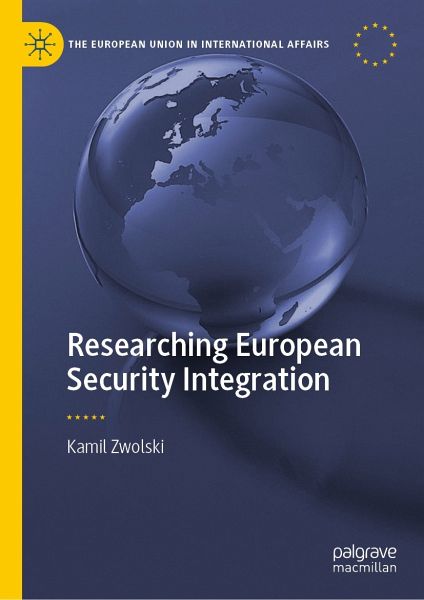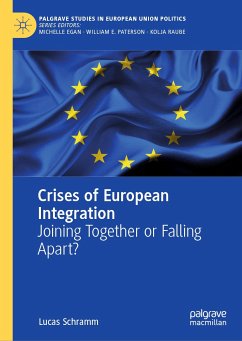
Researching European Security Integration (eBook, PDF)
Versandkostenfrei!
Sofort per Download lieferbar
80,95 €
inkl. MwSt.
Weitere Ausgaben:

PAYBACK Punkte
40 °P sammeln!
This book provides new and established researchers with innovative methodologies and research strategies to explore European security integration from a different perspective, challenging traditional theoretical interpretations. It takes a step back from well-established theoretical approaches to the European Union's (EU) Common Foreign and Security Policy (CFSP) and Common Security and Defence Policy (CSDP) to ask more fundamental questions about the core assumptions underpinning research on European security integration. It supports methodological innovations with an analysis of the most sig...
This book provides new and established researchers with innovative methodologies and research strategies to explore European security integration from a different perspective, challenging traditional theoretical interpretations. It takes a step back from well-established theoretical approaches to the European Union's (EU) Common Foreign and Security Policy (CFSP) and Common Security and Defence Policy (CSDP) to ask more fundamental questions about the core assumptions underpinning research on European security integration. It supports methodological innovations with an analysis of the most significant empirical problems of European security governance, including the war in Ukraine or the role of Russia in European security. In the last chapter, the author offers ideas for new pedagogical approaches to teaching European Studies.
Dieser Download kann aus rechtlichen Gründen nur mit Rechnungsadresse in A, B, BG, CY, CZ, D, DK, EW, E, FIN, F, GR, HR, H, IRL, I, LT, L, LR, M, NL, PL, P, R, S, SLO, SK ausgeliefert werden.












